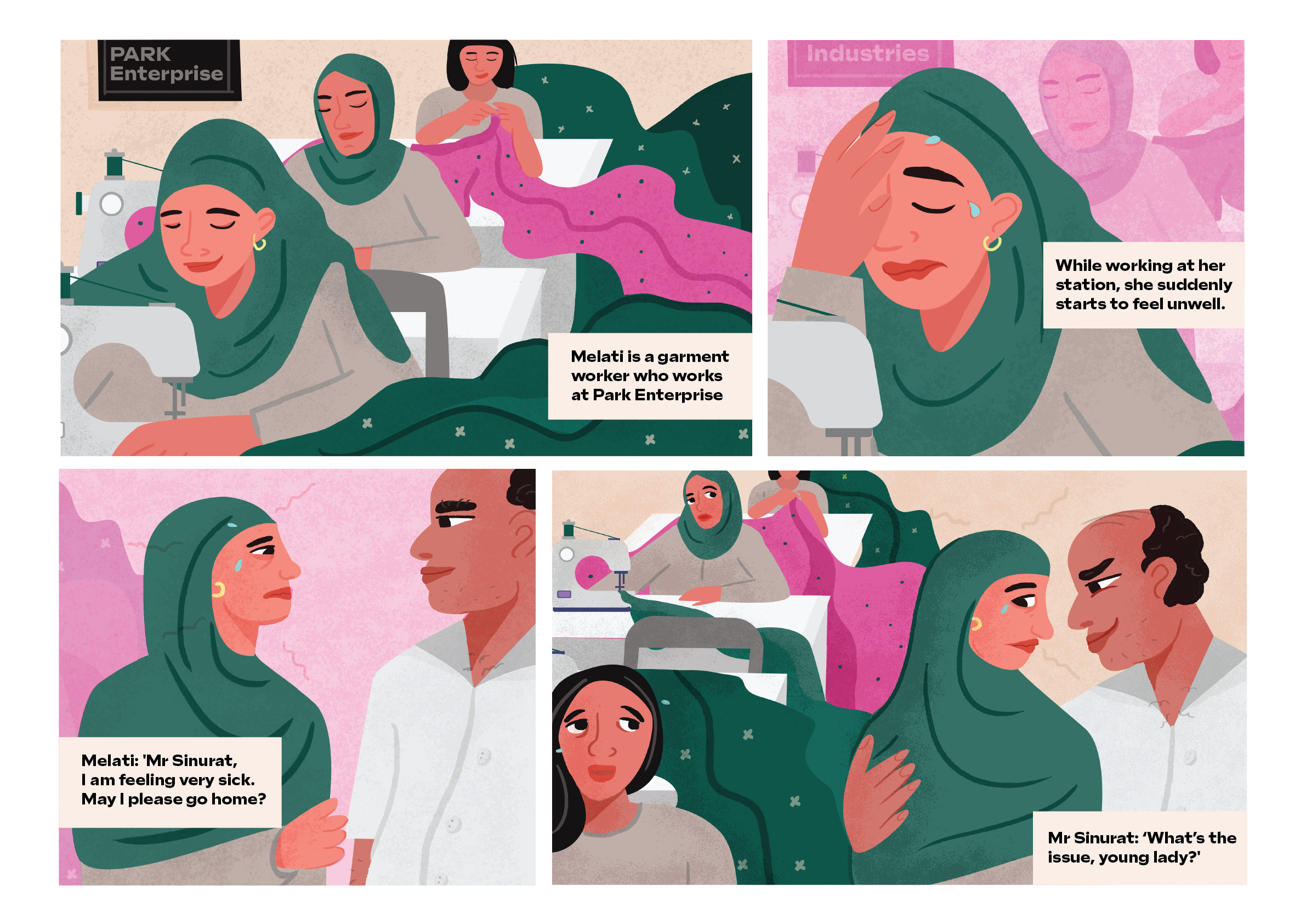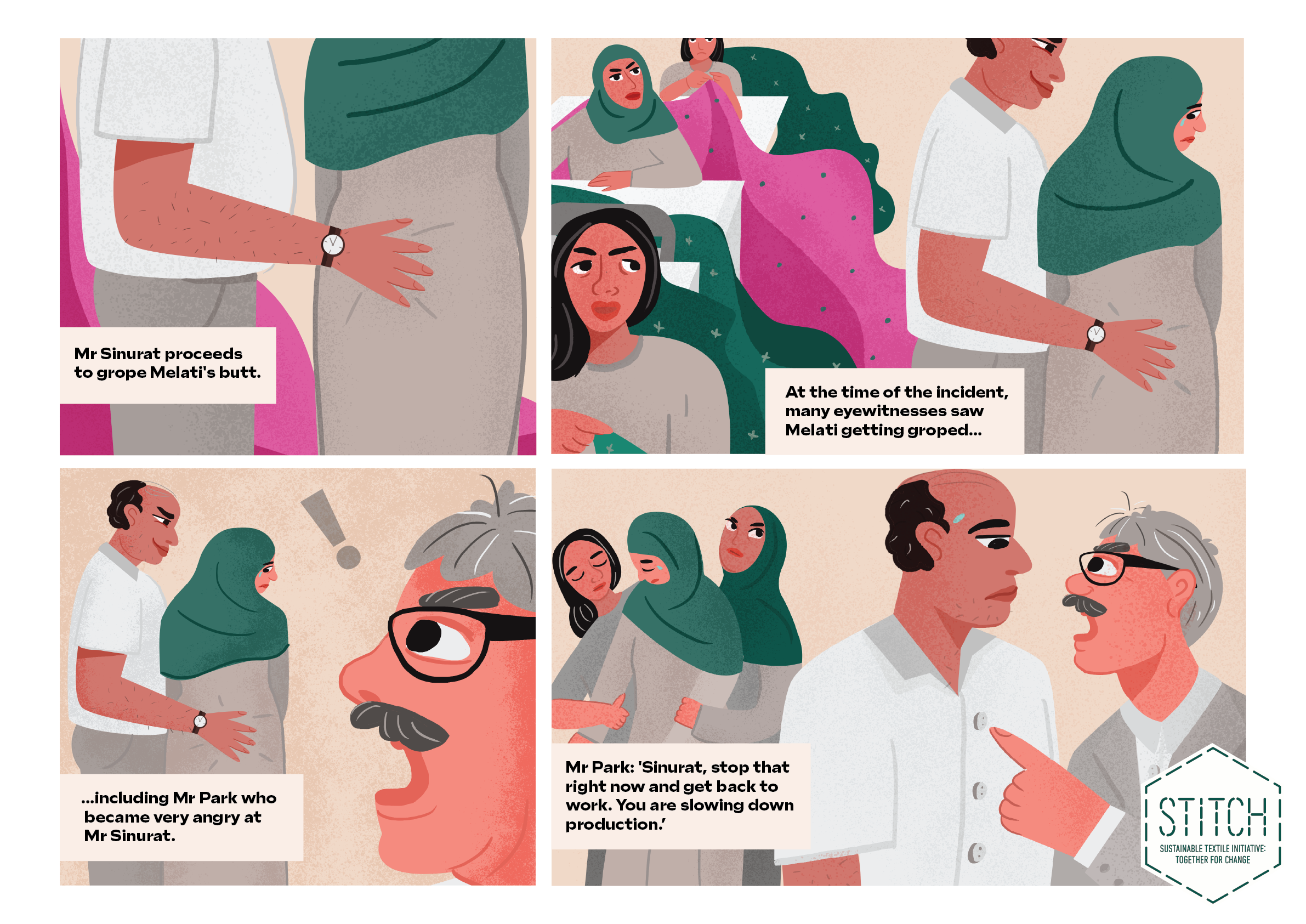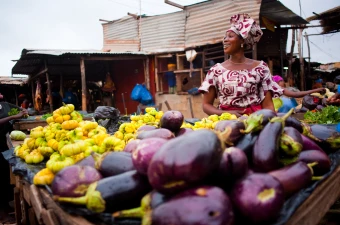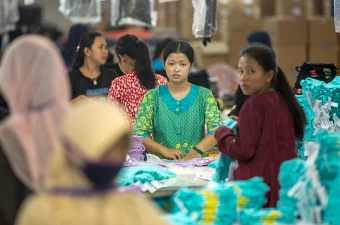A gripping and inspiring story of resilience and collective action
Melati, a young garment worker in Jakarta, Indonesia, stood up against sexual harassment in her workplace, aided by the unwavering support of her local trade union, Garteks. Melati's courageous story not only sheds light on the power of collective action in addressing gender-based violence in the global textile and garment industry but also advances Sustainable Development Goal 8 (SDG 8) and the cause of trade union freedom.
The textile and garment industry in Indonesia is a crucial economic pillar, contributing 11% to manufacturing exports and providing employment for over 4.3 million people. This sector is particularly significant for women, who make up a staggering 82% of the workforce. Despite their dominance, female workers often endure low wages and limited opportunities compared to their male colleagues.
Addressing Violence and Harassment in the Garment Industry
A pressing issue in the garment industry is the pervasive violence and harassment faced by female workers. Many encounter daily discrimination and abuse simply because of their gender. Garteks, a textile union supported by CNV Internationaal and supported by STITCH, is committed to improving working conditions for women in this sector.
Melati’s Story: A Beacon of Hope
Melati, a 24-year-old garment worker in Jakarta, exemplifies the struggle and triumph of women in this industry. Employed at a factory managed by Korean Director Mr. Park, Melati experienced harassment from her boss, Mr. Sinurat. Determined to seek justice, she reported the incident to Garteks.

Garteks Takes Action for Gender-Based Violence
The leaders of textile union Garteks took swift action, documenting Melati’s case and negotiating with factory management. Their efforts led to the inclusion of new clauses addressing gender-based violence and harassment in the Collective Bargaining Agreement (CBA) at Park Enterprises, aligning with the goals of SDG 8, which promotes decent work and economic growth.
The Importance of Trade Union Support
Melati's bravery, supported by Garteks, resulted in Mr. Sinurat’s removal as factory manager, underscoring the vital role of trade unions in protecting workers' rights. The Trade Union Chairman emphasized the significance of these actions, highlighting the lack of regulations protecting workers from sexual harassment and the hope for the approval of the TPKS Bill to bolster these protections.

A Testament to Collective Action
Melati's journey from victim to victor is a powerful reminder of the impact collective action can have. Her satisfaction with the outcome demonstrates the profound change that can occur when workers unite against harassment and discrimination. Garteks’ ongoing efforts, including training on gender-based violence and workplace harassment, continue to educate and empower both management and workers, ensuring labor rights are upheld.
Championing Labour Rights and SDG 8
Melati’s story not only highlights the courage of a young woman who dared to speak out but also serves as a shining example of how organized labor can drive significant improvements in the garment industry. Through solidarity and persistent advocacy, Garteks champions the principles of SDG 8 and trade union freedom, fostering a safer and more equitable workplace for all.
Promoting Decent Work and Economic Growth
The efforts of Garteks in advocating for better working conditions and supporting workers like Melati contribute to the broader goals of promoting decent work and economic growth. By addressing gender-based violence and harassment, they help create a more inclusive and fair work environment.
Empowering Female Workers in Indonesia
Through their dedication and collective action, Garteks empowers female workers in Indonesia's garment sector, ensuring their voices are heard and their rights are protected. Melati’s story is a testament to the positive changes that can be achieved when workers stand together against injustice.
About STITCH
Sustainable Textile Initiative: Together for Change (STITCH) is a partnership with a common vision: a global textile and garment industry that contributes to an equal and just society by respecting human rights in the world of work. STITCH consists of six partners: two labour rights organisations – the Center for Development and Integration (CDI) in Vietnam and Cividep in India; two Dutch union organisations — CNV Internationaal and Mondiaal FNV; and two multi-stakeholder initiatives — Ethical Trading Initiative (ETI) in the UK and Fair Wear in The Netherlands.
Publication date 14 11 2023


